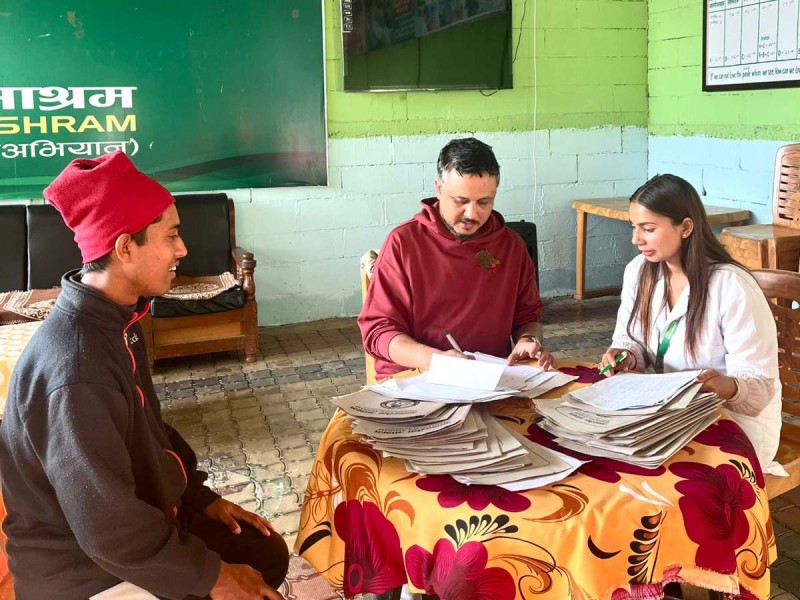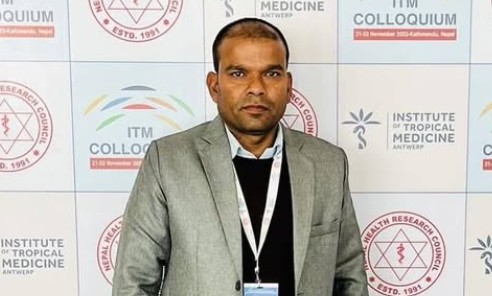- Jot N. Pattel
The life expectancy of the people in world has been changing and increasing day by day. However, many people live less than other people compare to developed country in the world.
In this world everyone wants to live more and more. However, it depends upon many factors that directly or indirectly effect hour life or daily activities which play a crucial role to increase or decrease our life time. Many study shows that there are some major factors who play a vital role in longevity in the population or society. Longevity itself know about the long living of live in society. It denotes especially long-lived members of a population. It is separated from life expectancy. Which focuses on the likely mean age of death within a population. Longevity is influenced by a combination of factors, and while there's no single formula for living a long life, several major components contribute to it.
The median age of the people in the world is around 71.95 in 2022. In addition, the life expectancy of American people is around 77.43 years and Indian people is around 67.74 years. However, Nepalese life expectancy at birth is around 71.3 years (Male = 66.57 and Female=70.36 years) in 2022.
Genetics: Our genetic makeup plays a significant role in how long you live. Some people are naturally predisposed to live longer, due to specific genetic markers related to aging and disease resistance. In addition, some people suffer from different genetic disease which helps to develop different non-communicable diseases in young age. Like; Cancer, Hypertension, Hemophilia, Sickle cell anemia. Which effects on longevity.
Nutrition: A diet rich in fruits, vegetables, whole grains, nuts, legumes, and healthy fats, while limiting processed foods, added sugar, and saturated fat, is generally considered the best nutritional approach to positively impact longevity; essentially, focusing on whole, plant-based foods is key to promoting a longer lifespan. The best diet for longevity is one that includes plenty of fruits, nuts and legumes, vegetables, and whole grains. The first is a Foods to limit or avoid for longevity include those high in added sugar, saturated fat, and sodium. The second is to Keep in mind that exercise, in addition to a healthy diet, is important for life expectancy.
Physical Activity: Regular exercise is critical for maintaining a healthy heart, body, and mind. Studies show that people who stay active, even with moderate exercise, tend to live longer and experience better quality of life as they age. Physical factors that significantly affect longevity include: body weight management (maintaining a healthy BMI), regular physical activity, muscle strength, flexibility, cardiovascular health, bone density, and overall fitness level; essentially, actively working to maintain a healthy body composition and functional abilities throughout life contributes to increased lifespan.
Social Connections: Strong social bonds and a sense of community are linked to better mental and physical health, and they can reduce the risk of mental decline and chronic diseases. People with strong social ties tend to live longer. Research consistently shows that strong social connections, including close friendships and supportive relationships, significantly impact longevity, with studies indicating that social isolation and loneliness are linked to increased mortality rates, particularly in older adults; essentially, having a robust social network can contribute to a longer life by improving mental health and reducing stress levels.
Mental Health and Stress Management: Chronic stress can accelerate aging and contribute to various diseases. Practices such as mindfulness, meditation, and cultivating a positive outlook on life can help manage stress and contribute to a longer, healthier life. Managing mental health and stress effectively can significantly impact longevity by reducing the negative effects of chronic stress on the body, including inflammation, accelerated aging, and increased risk of chronic diseases, ultimately contributing to a longer lifespan; key practices include regular exercise, mindfulness meditation, sufficient sleep, healthy eating, social connection, and developing coping mechanisms to manage stress effectively.
Sleep: Adequate and high-quality sleep is essential for the body's repair processes and overall health. Chronic sleep deprivation can lead to a range of health issues that negatively impact longevity. Sleep duration and regularity both impact longevity. Sleeping too little or too much, or not sleeping regularly, can increase the risk of dying.
Sleep duration:
Sleeping fewer than 7 hours per night is associated with a 12% higher risk of dying
Sleeping more than 8 or 9 hours per night is associated with a 30% higher risk of dying
The optimal sleep duration for healthy adults is 7–9 hours per night
Sleep regularity:
People with less regular sleep patterns have a higher risk of premature death, Sleep regularity is a stronger predictor of mortality risk than sleep duration
Sleep habits:
Establishing a consistent bedtime and wake-up time can help improve sleep habits, developing a bedtime routine, such as brushing your teeth and changing into pajamas, can help signal to your brain that it's time to wind down.
Sleep quality:
Sleep quality is also important for longevity, Sleep quality can be improved by tracking and optimizing sleep-related biomarkers like vitamin D, magnesium, and cortisol
Sleep and health:
Poor sleep is linked to an increased risk of cardiovascular disease, hypertension, stroke, and heart attack
Avoiding Harmful Habits: Avoiding smoking, excessive alcohol consumption, and other harmful behaviors can significantly improve your lifespan and quality of life. To maximize longevity, key harmful habits to avoid include: smoking, excessive alcohol consumption, a poor diet high in processed foods and sugar, lack of physical activity, chronic stress, inadequate sleep, and neglecting regular medical checkups; instead, focus on a balanced diet, regular exercise, stress management techniques, sufficient sleep, and maintaining healthy relationships.
Access to Healthcare: Regular check-ups, preventive care, and prompt treatment for health conditions are important for identifying potential issues early and managing them effectively, which can extend life. Access to quality healthcare significantly impacts longevity by allowing for early detection and treatment of diseases, managing chronic conditions effectively, and providing preventative care, which can ultimately lead to a longer life expectancy and improved quality of life in later years.










